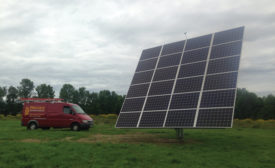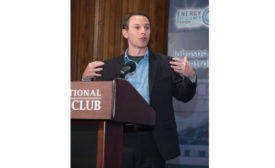Home » energy management
Articles Tagged with ''energy management''
Solar HVAC is going through massive changes as demand continues to flourish
Read More
Teaching Greenhorn Techs Green Technologies
Contractors gain a competitive edge through renewable training and education
Read More
Wind, Solar, and the Renewable Energy Tax Credit
Manufacturers, contractors, and customers prepare for tax credit expiration in 2016
Read More
Emerging Companies Fuel the Energy Management Market
Firms are increasingly turning their attention to smart building solutions
August 31, 2015
US Leads Efficiency Market
Global revenue expected to increase from $22.8 billion in 2015 to $47.5 billion in 2024
August 31, 2015
Bosch Opens Green Living Awards Contest
Contest recognizes residential and commercial projects that use Bosch products
August 31, 2015
Home Energy Management Systems Market to Grow at CAGR of 27% to 2019
The need for energy conservation will drive the market
August 25, 2015
Quatrro and GridPoint Form Strategic Partnership to Offer Energy Management
Services aimed at small and medium businesses
August 20, 2015
The Power of Energy Efficiency
Addressing what’s here and what’s next in energy efficiency
Read More
Energy Management for Health Care Market Forecast to Reach $2.2 Billion by 2024
Increasing demand for resiliency expected to drive the market for energy management in hospitals
August 12, 2015
Copyright ©2025. All Rights Reserved BNP Media.
Design, CMS, Hosting & Web Development :: ePublishing






